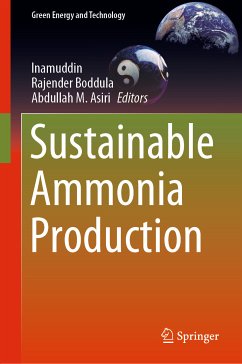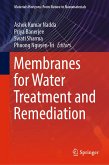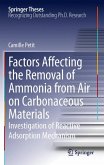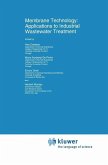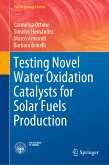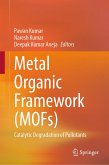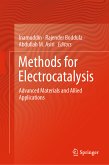Sustainable Ammonia Production (eBook, PDF)
Redaktion: Inamuddin; Asiri, Abdullah M.; Boddula, Rajender
89,95 €
89,95 €
inkl. MwSt.
Sofort per Download lieferbar

45 °P sammeln
89,95 €
Als Download kaufen

89,95 €
inkl. MwSt.
Sofort per Download lieferbar

45 °P sammeln
Jetzt verschenken
Alle Infos zum eBook verschenken
89,95 €
inkl. MwSt.
Sofort per Download lieferbar
Alle Infos zum eBook verschenken

45 °P sammeln
Sustainable Ammonia Production (eBook, PDF)
Redaktion: Inamuddin; Asiri, Abdullah M.; Boddula, Rajender
- Format: PDF
- Merkliste
- Auf die Merkliste
- Bewerten Bewerten
- Teilen
- Produkt teilen
- Produkterinnerung
- Produkterinnerung

Bitte loggen Sie sich zunächst in Ihr Kundenkonto ein oder registrieren Sie sich bei
bücher.de, um das eBook-Abo tolino select nutzen zu können.
Hier können Sie sich einloggen
Hier können Sie sich einloggen
Sie sind bereits eingeloggt. Klicken Sie auf 2. tolino select Abo, um fortzufahren.

Bitte loggen Sie sich zunächst in Ihr Kundenkonto ein oder registrieren Sie sich bei bücher.de, um das eBook-Abo tolino select nutzen zu können.
This book presents sustainable synthetic pathways and modern applications of ammonia. It focuses on the production of ammonia using various catalytic systems and its use in fuel cells, membrane, agriculture, and renewable energy sectors. The book highlights the history, investigation, and development of sustainable pathways for ammonia production, current challenges, and state-of-the-art reviews. While discussing industrial applications, it fills the gap between laboratory research and viable applications in large-scale production.
- Geräte: PC
- ohne Kopierschutz
- eBook Hilfe
- Größe: 4.79MB
Andere Kunden interessierten sich auch für
![Membranes for Water Treatment and Remediation (eBook, PDF) Membranes for Water Treatment and Remediation (eBook, PDF)]() Membranes for Water Treatment and Remediation (eBook, PDF)129,95 €
Membranes for Water Treatment and Remediation (eBook, PDF)129,95 €![Factors Affecting the Removal of Ammonia from Air on Carbonaceous Materials (eBook, PDF) Factors Affecting the Removal of Ammonia from Air on Carbonaceous Materials (eBook, PDF)]() Camille PetitFactors Affecting the Removal of Ammonia from Air on Carbonaceous Materials (eBook, PDF)73,95 €
Camille PetitFactors Affecting the Removal of Ammonia from Air on Carbonaceous Materials (eBook, PDF)73,95 €![Membrane Technology: Applications to Industrial Wastewater Treatment (eBook, PDF) Membrane Technology: Applications to Industrial Wastewater Treatment (eBook, PDF)]() Membrane Technology: Applications to Industrial Wastewater Treatment (eBook, PDF)73,95 €
Membrane Technology: Applications to Industrial Wastewater Treatment (eBook, PDF)73,95 €![Emerging Sustainable Nanomaterials for Biomedical Applications (eBook, PDF) Emerging Sustainable Nanomaterials for Biomedical Applications (eBook, PDF)]() Emerging Sustainable Nanomaterials for Biomedical Applications (eBook, PDF)178,95 €
Emerging Sustainable Nanomaterials for Biomedical Applications (eBook, PDF)178,95 €![Testing Novel Water Oxidation Catalysts for Solar Fuels Production (eBook, PDF) Testing Novel Water Oxidation Catalysts for Solar Fuels Production (eBook, PDF)]() Carminna OttoneTesting Novel Water Oxidation Catalysts for Solar Fuels Production (eBook, PDF)73,95 €
Carminna OttoneTesting Novel Water Oxidation Catalysts for Solar Fuels Production (eBook, PDF)73,95 €![Metal Organic Framework (MOFs) (eBook, PDF) Metal Organic Framework (MOFs) (eBook, PDF)]() Metal Organic Framework (MOFs) (eBook, PDF)145,95 €
Metal Organic Framework (MOFs) (eBook, PDF)145,95 €![Methods for Electrocatalysis (eBook, PDF) Methods for Electrocatalysis (eBook, PDF)]() Methods for Electrocatalysis (eBook, PDF)177,95 €
Methods for Electrocatalysis (eBook, PDF)177,95 €-
-
-
This book presents sustainable synthetic pathways and modern applications of ammonia. It focuses on the production of ammonia using various catalytic systems and its use in fuel cells, membrane, agriculture, and renewable energy sectors. The book highlights the history, investigation, and development of sustainable pathways for ammonia production, current challenges, and state-of-the-art reviews. While discussing industrial applications, it fills the gap between laboratory research and viable applications in large-scale production.
Dieser Download kann aus rechtlichen Gründen nur mit Rechnungsadresse in A, B, BG, CY, CZ, D, DK, EW, E, FIN, F, GR, HR, H, IRL, I, LT, L, LR, M, NL, PL, P, R, S, SLO, SK ausgeliefert werden.
Produktdetails
- Produktdetails
- Verlag: Springer International Publishing
- Seitenzahl: 136
- Erscheinungstermin: 9. Januar 2020
- Englisch
- ISBN-13: 9783030351069
- Artikelnr.: 58533858
- Verlag: Springer International Publishing
- Seitenzahl: 136
- Erscheinungstermin: 9. Januar 2020
- Englisch
- ISBN-13: 9783030351069
- Artikelnr.: 58533858
- Herstellerkennzeichnung Die Herstellerinformationen sind derzeit nicht verfügbar.
Dr. Inamuddin is currently working as an Assistant Professor in the Chemistry Department, Faculty of Science, King Abdulaziz University, Jeddah, Saudi Arabia. He is a permanent faculty member (Assistant Professor) in the Department of Applied Chemistry, Aligarh Muslim University, Aligarh, India. He obtained Master of Science degree in Organic Chemistry from Chaudhary Charan Singh (CCS) University, Meerut, India, in 2002. He received his Master of Philosophy and Doctor of Philosophy degrees in Applied Chemistry from Aligarh Muslim University (AMU), India, in 2004 and 2007, respectively. He has extensive research experience in the multidisciplinary fields of analytical chemistry, materials chemistry, and electrochemistry and, more specifically, renewable energy and environment. He has worked on different research projects as the Project Fellow and Senior Research Fellow funded by University Grants Commission (UGC), Government of India, and Council of Scientific and Industrial Research (CSIR), Government of India. He has received Fast Track Young Scientist Award from the Department of Science and Technology, India, to work in the area of bending actuators and artificial muscles. He has completed four major research projects sanctioned by University Grants Commission, Department of Science and Technology, Council of Scientific and Industrial Research, and Council of Science and Technology, India. He has published 146 research articles in international journals of repute and eighteen book chapters in knowledge-based book editions published by renowned international publishers. He has published fifty-five edited books with Springer, United Kingdom, Elsevier, Nova Science Publishers, Inc., U.S.A., CRC Press Taylor & Francis Asia Pacific, Trans Tech Publications Ltd, Switzerland, IntechOpen Limited, U.K., and Materials Science Forum LLC, U.S.A. He is the member of various journals editorial boards. He is also serving as Associate Editor for journals, Environmental ChemistryLetter, Applied Water Science and Euro-Mediterranean Journal for Environmental Integration, Springer-Nature; Frontiers Section Editor, Current Analytical Chemistry, Bentham Science Publishers, Editorial Board Member, Scientific Reports-Nature, Editor, Eurasian Journal of Analytical Chemistry and Review Editor, Frontiers in Chemistry, Frontiers, U.K. He is also guest-editing various special thematic special issues to the journals of Elsevier, Bentham Science Publishers, and John Wiley & Sons, Inc. He has attended as well as chaired sessions in various international and national conferences. He has worked as a Postdoctoral Fellow, leading a research team at the Creative Research Initiative Center for Bio-Artificial Muscle, Hanyang University, South Korea, in the field of renewable energy, especially biofuel cells. He has also worked as a Postdoctoral Fellow at the Center of Research Excellence in Renewable Energy, King Fahd University of Petroleum and Minerals, Saudi Arabia, in the fields of polymer electrolyte membrane fuel cells and computational fluid dynamics of polymer electrolyte membrane fuel cells. He is a life member of the Journal of the Indian Chemical Society. His research interest includes ion exchange materials, a sensor for heavy metal ions, biofuel cells, supercapacitors, and bending actuators. Dr Rajender Boddula, is currently working as a CAS-PIFI Fellow in the CAS Key Laboratory of Nanosystems and Hierarchical Fabrication, National Center for Nanoscience and Technology, Beijing, China. He obtained Master of Science degree in Organic Chemistry from Kakatiya University, Warangal, India, in 2008. He received his Doctor of Philosophy degree in Chemistry with the highest honors in 2014 for the work entitled "Synthesis and Characterization of Polyanilines for Supercapacitor and Catalytic Applications" at the CSIR-Indian Institute of Chemical Technology (CSIR-IICT) and Kakatiya University (India). Before joining National Center for Nanoscience and Technology (NCNST) as a CAS-PIFI Research Fellow, China, he worked as senior research associate and Postdoc at the Aligarh Muslim University (AMU, India) and National Tsing Hua University (NTHU, Taiwan), respectively, in the fields of biofuel and CO2 reduction applications. His academic honors include University Grants Commission National Fellowship and many merit scholarships, Study Abroad Fellowships from Australian Endeavor Research Fellowship and CAS-PIFI. He has published many scientific articles in international peer-reviewed journals and has authored nine book chapters and also serving as an editorial board member and referee for reputed international peer-reviewed journals. His specialized areas of energy conversion and storage technologies include nanomaterials, graphene, polymer composites, heterogeneous catalysis, photoelectrocatalytic water splitting, biofuel cell, and supercapacitor applications. Prof. Abdullah M. Asiri is the Head of theChemistry Department at King Abdulaziz University since October 2009, and he is the Founder and the Director of the Center of Excellence for Advanced Materials Research (CEAMR) since 2010 till now. He is a Professor of Organic Photochemistry. He graduated from King Abdulaziz University (KAU) with a B.Sc. in Chemistry in 1990 and a Ph.D. from University of Wales, College of Cardiff, UK, in 1995. He was promoted to a Professor in 2004. His research interests cover color chemistry, synthesis of novel photochromic, thermochromic systems, synthesis of novel coloring matters and dyeing of textiles, materials chemistry, nanochemistry and nanotechnology polymers and plastics. Prof. Asiri is the principal supervisors of more than 20 M.Sc. and six Ph.D.theses; he is the main author of ten books in different chemistry disciplines. Prof. Asiri is the Editor-in-Chief of King Abdulaziz University Journal of Science. A major achievement of Prof. Asiri is the discovery of tribochromiccompounds, a class of compounds which change from slightly or colorless to deep colored when subjected to small pressure or when grind. This discovery was introduced to the scientific community as a new terminology published by IUPAC in 2000. This discovery was awarded a patent from European Patent Office and from UK patent and some other patent office in Europe. Prof. Asiri involved in many committees at the KAU level and also on the national level; he took a major role in the Advanced Materials Committee working for KACST to identify the National Plan for Science and Technology in 2007. Prof. Asiri played a major role in advancing the chemistry education and research in KAU, and he has been awarded the best researchers from KAU for the past five years. He also awarded with the Young Scientist Award from the Saudi Chemical Society in 2009, and also the first prize for the distinction in science from the Saudi Chemical Society in 2012. He also received a recognition certificate from the American Chemical Society (Gulf Region Chapter) for the advancement of chemical science in the Kingdome. Also, he received a Scopus certificate for the most Publishing Scientist in Saudi Arabia in chemistry in 2008. He is also a member of the Editorial Board of Pigments and Resin Technology (UK), Organic Chemistry in Sight (New Zealand), Designed Monomers & Polymers, and Journal of Single Molecule Research. He is the Vice-President of Saudi Chemical Society (Western Province Branch). He holds four USA patents, more than 800 publications in international journals, seven book chapters, and 10 books.
Earth Abundant Catalysis for Ammonia Synthesis.- Reactor design, modelling and process intensification for ammonia synthesis.- Reactor design, modelling and process intensification for ammonia synthesis.- Ammonia from Steelworks.- Catalytic Ammonia Decomposition for Hydrogen Production: Utilization of ammonia in a fuel cell.- Electrocatalytic nitrogen (N2) reduction.- Low-Pressure Ammonia Production.
Earth Abundant Catalysis for Ammonia Synthesis.- Reactor design, modelling and process intensification for ammonia synthesis.- Reactor design, modelling and process intensification for ammonia synthesis.- Ammonia from Steelworks.- Catalytic Ammonia Decomposition for Hydrogen Production: Utilization of ammonia in a fuel cell.- Electrocatalytic nitrogen (N2) reduction.- Low-Pressure Ammonia Production.
